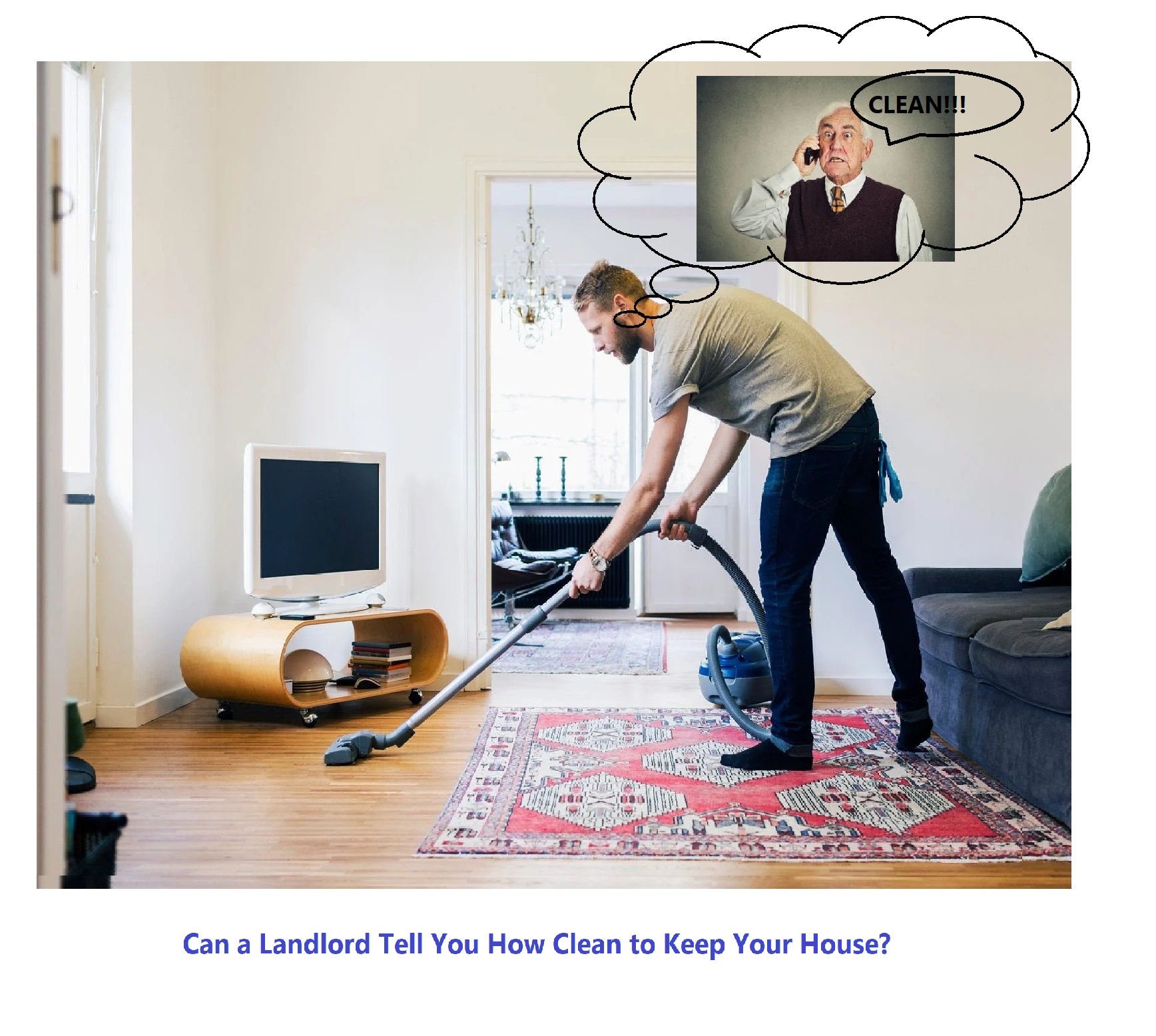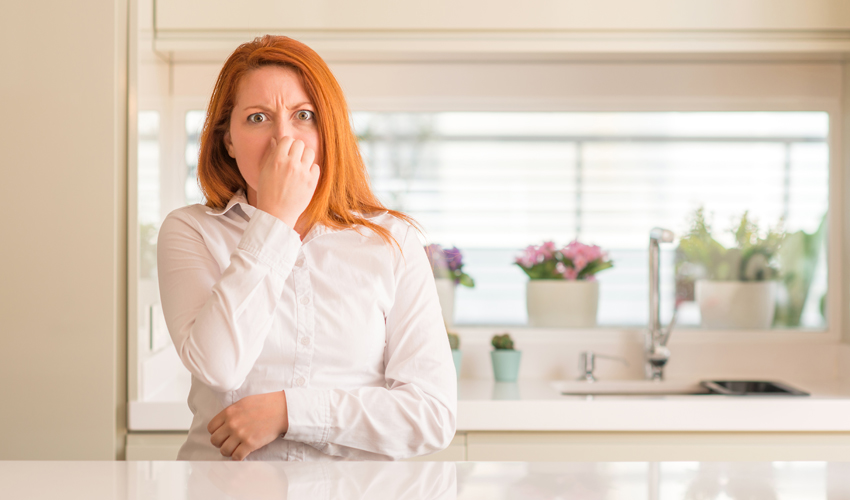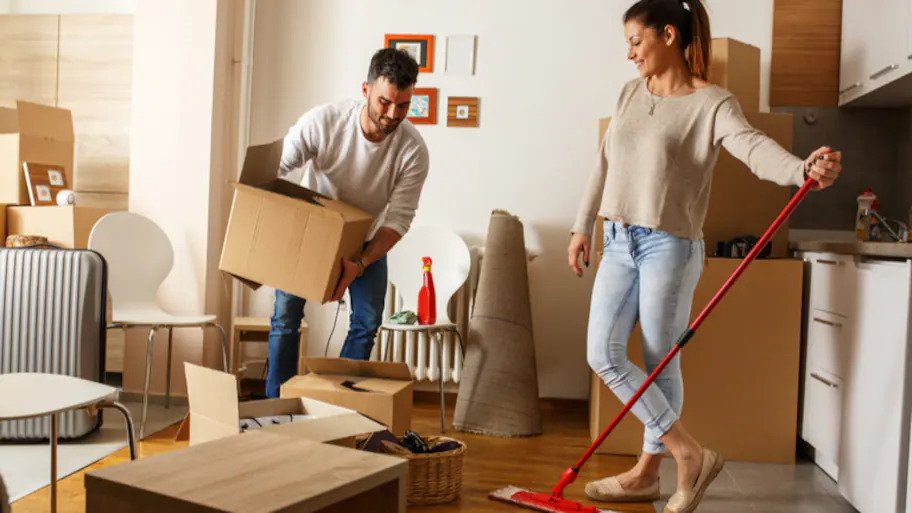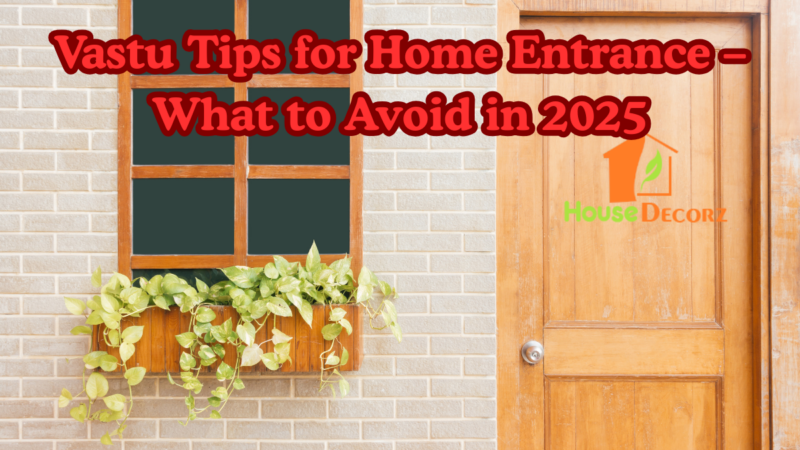Can A Landlord Tell You How Clean To Keep Your House

Can A Landlord Tell You How Clean To Keep Your House? Yes, your landlords can tell you how clean to keep your house. It’s important to keep your home clean and tidy. However, the answer depends on the situation.
Landlords can’t make you clean your house, but in some cases, they can give you consequences if you don’t do it. This means that if you don’t follow their cleaning instructions, there might be a punishment, such as losing your deposit. So, listening to your landlords and keeping your house clean is important.
Some Landlords are Involved More Compared to Other Landlords
Some landlords don’t take care of the buildings they own very well. They don’t fix things that are broken, and they don’t make sure everyone follows the rules. This can make the building not safe or not comfortable.
Other landlords are too involved in the things you do. They follow the rules very strictly and visit too often or ask too many personal questions. This can be annoying and make you feel like you don’t have privacy.
Sometimes, landlords and tenants don’t get along well. The landlord wants to control the property they own, and the tenant wants to feel at home. This can cause some problems.
The laws about what landlords can and can’t do are different in different places. To know exactly what your landlord can do, you need to look up the laws where you live or talk to a lawyer who knows about tenant rights. This way, you’ll know your rights and what you can do if there’s a problem.
7 situations when a landlord might have the right to intervene or require cleaning:
Lease Contract
Your landlord probably can’t make you fold your laundry or clean your desk. However, in some places, landlords can put a rule in your lease agreement about cleaning. When you sign the lease, you are saying that you will follow these rules.
The cleaning rules might say things like:
- The house should be clean.
- No trash should be left around.
- Walkways should be clear.
Or, the lease might have a general rule that says you must keep the house clean and healthy.
When you rent a place to live, like an apartment or a house, there are rules you must follow. This is called housekeeping.
To make sure everyone follows the rules, your landlord might come and check your place once or twice a year. If they find that you are not following the rules, there might be some consequences.
When you rent a place to live, like an apartment or a house, there are rules you must follow. If you break those rules, your landlord might have to ask you to leave. This is called eviction. But it’s not very common for someone to get evicted unless their mess is dangerous or causes problems for others.
Another thing that might happen is your landlord might decide not to let you rent the place anymore when your lease is up for renewal.
This could happen if they think it would be easier to find someone else who will follow the rules instead of dealing with your mess.
ALSO READ: Clean the Stovetop With These 5 min Steps
Peaceful Enjoyment
When people rent a home, they have the right to live there peacefully and happily without any major issues. This is called “peaceful enjoyment,” and it’s a crucial part of the rules for renters.
If your landlord is constantly inspecting your place or is being mean about its appearance, you might be able to claim that they’re violating the “peaceful enjoyment” rule. This can give you the option to move out early and protect you from any potential legal action from the landlord.
It’s risky to say your landlord is breaking the peaceful enjoyment rules because they are allowed to enter your rental property, but only for valid reasons.
Communicating with your landlord is a good idea to find a solution that satisfies both parties. This will ensure that everyone is content.
ALSO READ: How to Stop Drones From Flying Over Your House With Legal Steps
Health Hazards
How clean a space is is usually a matter of personal preference, but some messes can be harmful to others. Landlords have more control over ensuring a clean and safe space rather than just neat.
Can the landlord ask you to clean up? Yes, if your mess becomes a hazard, your landlord has the right to take action.
Pests.
If you don’t clean up your food and leave it lying around, pests like ants, roaches, and flies might come and make your place their home. And if they do, they can also spread to other parts of the building. To keep this from happening, make sure to clean up your food and keep your place tidy.
Mold.
Mold grows in damp places, and its small particles can spread through the air and become a health hazard for you and others who live in the same building.
Fire hazards.
Having too much clutter in your home can be a fire hazard. Suppose you have piles of flammable items like paper, clothes, or even dust. In that case, it can be risky, especially if they’re close to sources of heat, candles, smoking materials, or electrical outlets that aren’t maintained properly.
ALSO READ: Boost Your Cleaning With This Cheap Homemade Glass Cleaner
Foul Smells
Even if your home is safe, not cleaning it well enough can lead to unpleasant odors and become a problem for those around you. Odors are a common concern.
When your landlord says that your home has an odor, it’s likely accurate. Sometimes we can become so used to a smell that we don’t even notice it in our own living space.
A place can start to have an odor for a variety of reasons, such as leaving food out, not disposing of trash properly, smoking, having pets, or sweating a lot during at-home workouts.
Being a good neighbor means not leaving your belongings or trash in public spaces like hallways or on visible places like balconies or patios. If your landlord asks you to clean up, it’s best to follow their request.
A landlord’s request for cleaning must be fulfilled in order to avoid chaos.

Property Damage
Your landlord should be aware that their rental property will exhibit signs of normal usage after some time. This is to be expected and not a cause for concern. For instance, the carpet may not maintain its original appearance from when you first moved in, but you should not face repercussions for this.
If you cause damage to the house because of your rough handling or neglect of cleaning, you may be responsible for fixing it.
If you don’t clean, you may end up with unsightly stains on your carpets, walls, and even ceilings. Mildew can also leave permanent marks on different surfaces in your home. That’s why it’s a good idea to clean up messes as soon as possible to prevent them from becoming bigger problems.
If you don’t clean things, they can get worse over time. This can damage pipes and appliances in your house and stop them from working properly.
Accidents can cause damage; if they do, you should try fixing them quickly. This will make sure your home stays in good shape. Remember that anything you can’t take with you when you leave is your landlord’s stuff, not yours. It’s up to you to keep it in good condition while you’re living there.
WORTH READING: Follow This 30 Day Spring Cleaning Checklist to Keep Your House Shiny
Renting to Others
Your landlord may check that public spaces are clean, but they usually won’t check your home. As long as there are no pests or unpleasant odors, they will usually leave you alone. However, it’s still important to keep your home neat and clean.
When you’re ready to leave your home, your landlord may want to show it to new renters. This can be difficult because they want the place to look nice, but you may not want to spend time cleaning and organizing before you go. This can create some conflict between you and the landlord.
Is it okay for your landlord to ask you to clean your home before they show it to others? Yes, it is. But if you don’t clean it, your landlord might be unable to force you to.
Moving Out

As you move out, your landlord might expect your home to be tidy. They’ve had your security deposit the whole time you lived there, and now you want it back. But if your home isn’t cleaned as it should be, your landlord might keep some or all of your deposit.
When you move out, the cleanliness of your home is determined by the terms of your lease. Usually, the lease will say that the home should be cleaned up like it’s been swept with a broom.
When you move out, the “broom clean” rule means you have to clean up your home before leaving.
This means you should take all of your things with you, sweep the floors, and leave the place looking the same way it was when you first moved in. This does not include normal wear and tear, like a few scratches on the walls or a little bit of dirt on the floor.
So what if you fails after, a landlord tell you how clean to keep your house, can he keep your security deposit?
If your home is very messy when you move out and it’s more than just normal use, your landlord might not give you back your security deposit.
This could happen if it’s written in the lease. If you don’t think it’s fair, you could go to court, but that takes a lot of time and money. It might be easier just to accept it and move on.
RELATED: How to Hire Professional Packers and Movers?
How to Keep The Situation Under Control
Sometimes, landlords can be too nosy and want to check your home a lot. If they don’t let you enjoy your home in peace or say you’ll have to leave if you don’t clean up, it can make you very unhappy. But if this happens, you might be able to stand up for yourself and say no if you think it’s unfair. The law might be on your side in these special situations.
Most of the time, your landlord might ask you to clean up, but you don’t have to do it if you don’t want to. If you think it’s unfair, you can say something like, “I understand that my mess might upset some people, but it doesn’t bother me. I’ll make sure it stays in my own space and doesn’t spread to common areas.”
If your home smells really bad, like old garbage, or it’s hard to walk around because there’s too much stuff, or if there is mold growing in your bathroom, it’s a good idea to clean it up. Your landlord tell you how clean to keep your house because it is for the safety of you, the neighbors and the maintenance of the house.






